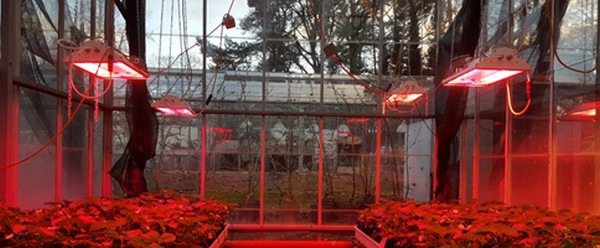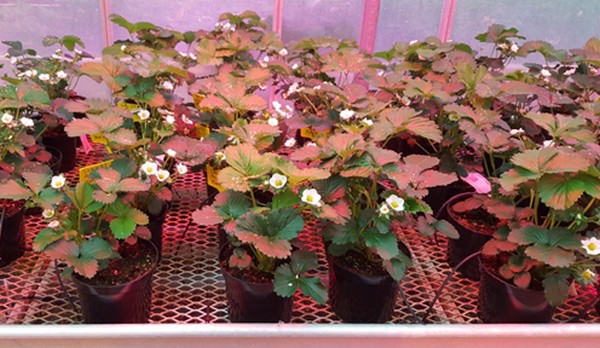Strawberry cultivation is a key area of precision farming and much effort goes into the optimisation of growing as predictions show that consumer demand is set to increase steadily over the coming years. Joint research focusing on glasshouse strawberry cultivation and carried out by the University of Reading in the United Kingdom and Hungarian lighting expert Tungsram group is shedding more light on the benefits of LEDs in strawberry production.
Global strawberry production increased by a staggering 39.4% between 2008 and 2018, according to figures released by the Food and Agriculture Organization (FAO). The trend in Europe is much similar, with growth rates on the continent moving firmly in the double-digit range. Budapest-based lighting expert Tungsram has joined forces with the University of Reading to help growers boost their yield while reducing their energy costs. The parties launched a research project in mid-2019 on the use of LED lighting for out-of-season glasshouse strawberry crops.

The University of Reading is rightly considered an expert on the subject, as agriculture has always been one of its core subjects, propelling the institution to among the 10 most recognised centres for agricultural studies globally. The Soft Fruit Technology Group at the university has been around for more than a quarter of a century and its mandate is to provide robust research and expert advice in order to support industry needs. The Group covers a wide range of research topics, including the release of new varieties, out of season production, crop forecasting, and vertical farming.
Follow-up experiments
The findings of the first research project of the Soft Fruit Technology Group and Tungsram, under the leadership of Professor Professor Paul Hadley and involving Research Fellow Dr Carrie-Anne Twitchen as well as PhD student Winnie Swann, showed that all the LED treatments produced higher average berry weights than the unlit and the high-pressure sodium (HPS) light treatment. The LED treatment also appears to have produced a more compact plant. One of the objectives of the re-run of the experiment – which ended in May 2020 - was to re-confirm the data of the first study and to gather information on heat-related aspects of the use of LEDs. A key focus of the treatment was to create a warmer environment as the use of HPS results in warmer temperature than the use of LEDs.

The parties are currently engaged in a third phase of research. Reading University and Tungsram are committed to further increasing their knowledge on the topic and supporting the industry by continuously carrying out market relevant experiments and research. Tungsram’s research lamps, which provide all-around spectral variations to fine-tune light settings and modify the light spectrum, provided the perfect answer for gauging the spectral requirements of strawberries, said Winnie Swann. The lamps are used primarily for R&D purposes and the module is equipped with pure color LED chips, which guarantee unlimited variations in terms of colors.
Support
“Our ultimate goal is to support commercial growers with financially viable solutions. There is increasing demand on the part of retailers for year-around production. We are striving to come up with the optimal lighting solution for growers, combined with outstanding academic research,” according to Keith Thomas, Commercial Leader at Tungsram’s Agritech division.
Professor Hadley stressed that events such as the coronavirus pandemic and Brexit are having an impact on market conditions and the biggest investment in the greenhouse industry is setting up a system that allows for more intensive production, which goes hand in hand with the use of LED lights. The Professor added that the professional and friendly technical support provided by Tungsram was key for the success of the projects. “Ours is by now a long-standing relationship and we expect to continue working together going forward,” Hadley said.


